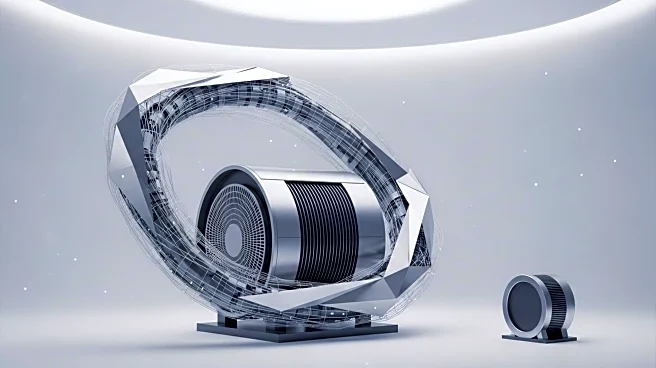What's Happening?
The U.S. House of Representatives has passed the GRID Power Act, aimed at prioritizing dispatchable power plants in interconnection queues. Sponsored by Rep. Troy Balderson, the bill addresses the overwhelmed interconnection queue, which delays shovel-ready power projects. The act mandates the Federal Energy Regulatory Commission (FERC) to review proposals from regional transmission organizations and independent system operators within 60 days. These proposals must demonstrate enhancements to grid reliability and resilience. The bill defines dispatchable power as resources capable of providing forecastable electric supply necessary for grid reliability.
Why It's Important?
The GRID Power Act seeks to streamline the interconnection process, potentially accelerating the deployment of dispatchable power plants. This could improve grid reliability and meet rising energy demands. The bill has garnered support from the Electric Power Supply Association, highlighting its potential benefits for power producers. However, environmental groups like the Sierra Club argue that it may hinder the development of cleaner energy sources, such as wind and solar. The legislation reflects ongoing debates about balancing energy reliability with environmental sustainability.
What's Next?
FERC is required to initiate a rulemaking process to implement the GRID Power Act within 90 days of its enactment. The Senate will consider a companion bill introduced by Sens. John Hoeven and Todd Young. The outcome of these legislative efforts will shape the future of energy interconnection processes and influence the balance between dispatchable and renewable energy sources.









